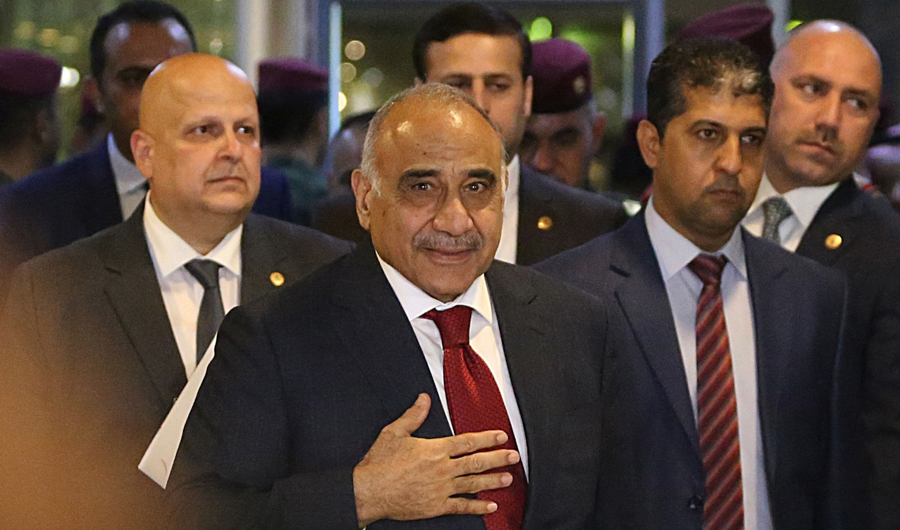Clashes erupt as Sudanese march on presidential palace
CAIRO: Clashes erupted Tuesday in the Sudanese capital between police and thousands of protesters attempting to march on the presidential palace to demand that President Omar Bashir step down, according to activists and video clips posted online.
The clips purported to show crowds of several hundred each gathering on side roads and headed toward the palace on the bank of the Blue Nile in the heart of Khartoum. They sang patriotic songs and chanted “Peaceful, peaceful against the thieves” and “The people want to bring down the regime.” The latter was the most popular slogan of the 2010 and 2011 Arab Spring revolts.
Large numbers of security forces were deployed across much of Khartoum Tuesday in anticipation of the march, with soldiers riding in all-terrain vehicles. Police used tear gas to disperse some of the protesters.
The protest was called by an umbrella of independent professional unions and supported by the country’s largest political parties, the Umma and Democratic Nationalist. The organizers want to submit a petition demanding that Bashir, in power for 29 years, step down.
Tuesday’s march follows nearly a week of protests initially sparked by rising prices and shortages of food and fuel, but which later escalated into calls for Bashir to go. The Sudanese leader was in the Al-Jazeera region south of Khartoum on a previously scheduled visit Tuesday. Live TV coverage showed him addressing supporters there.
The petition presented by the protesters demands that he hand over power to a “transitional government of technocrats with a defined mandate agreed upon by all segments of the Sudanese society.”
“We are asserting that we will continue to exercise all popular and peaceful options, including general strike and civil disobedience, to bring down the regime,” it said.
The march followed a joint statement Monday night by the United States, Britain, Norway and Canada, which said they were concerned by “credible reports” that Sudan’s security forces have used live ammunition against demonstrators.
They urged all parties to avoid violence or the destruction of property while affirming the right of the Sudanese people to peacefully protest to express their “legitimate grievances.”
The London-based rights group Amnesty International meanwhile said it had “credible reports” that Sudanese police have killed 37 protesters in clashes during the anti-government demonstrations.
An opposition leader said over the weekend that 22 protesters were killed. The government has acknowledged fatalities without providing any figures.
The military vowed Sunday to rally behind Bashir and emphasized in a statement that it was operating in harmony with the police and Sudan’s feared security agencies.
Bashir on Monday said his government would introduce measures to remedy the economy and “provide citizens with a dignified life.” He also warned citizens against what he called “rumor mongers.”
The protests over the past week have been met with a heavy security crackdown, with authorities arresting more than a dozen opposition leaders, suspending school and university classes, and imposing emergency rule or nighttime curfews in several cities. There has also been a near-total news blackout on the protests.
Bashir, in his mid-70s, seized power in a 1989 military coup that overthrew an elected but ineffective government. He is wanted by the International Criminal Court for committing crimes against humanity and genocide in the western Darfur region.
Bashir has ordered the use of force against protesters in the past — including in the last round of unrest in January — successfully crushing them to remain one of the longest-serving leaders in the region. Although his time in power has seen one crisis after another, he is seeking a new term in office, with loyal lawmakers campaigning for constitutional amendments that would allow him to run in the 2020 election.
Sudan lost three quarters of its oil wealth when the mainly animizt and Christian south seceded in 2011 after a long and ruinous civil war against the mainly Muslim and Arabized north. More recently, a currency devaluation caused prices to surge and a liquidity crunch forced the government to limit bank withdrawals, leading to long lines outside ATMs.

Sudan police disperse protesters with tear gas on sixth day of unrestSudan opposition leader says 22 killed in bread protests



